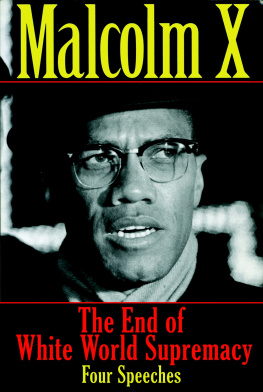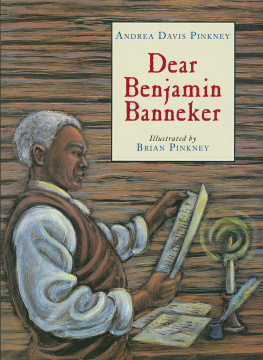Benjamin Black - Vengeance
Here you can read online Benjamin Black - Vengeance full text of the book (entire story) in english for free. Download pdf and epub, get meaning, cover and reviews about this ebook. genre: Detective and thriller. Description of the work, (preface) as well as reviews are available. Best literature library LitArk.com created for fans of good reading and offers a wide selection of genres:
Romance novel
Science fiction
Adventure
Detective
Science
History
Home and family
Prose
Art
Politics
Computer
Non-fiction
Religion
Business
Children
Humor
Choose a favorite category and find really read worthwhile books. Enjoy immersion in the world of imagination, feel the emotions of the characters or learn something new for yourself, make an fascinating discovery.

- Book:Vengeance
- Author:
- Genre:
- Rating:5 / 5
- Favourites:Add to favourites
- Your mark:
- 100
- 1
- 2
- 3
- 4
- 5
Vengeance: summary, description and annotation
We offer to read an annotation, description, summary or preface (depends on what the author of the book "Vengeance" wrote himself). If you haven't found the necessary information about the book — write in the comments, we will try to find it.
Vengeance — read online for free the complete book (whole text) full work
Below is the text of the book, divided by pages. System saving the place of the last page read, allows you to conveniently read the book "Vengeance" online for free, without having to search again every time where you left off. Put a bookmark, and you can go to the page where you finished reading at any time.
Font size:
Interval:
Bookmark:
Benjamin Black
Vengeance
ONE
1
Davy Clancy was not a good sailor, in fact he was secretly afraid of the sea, yet here he was, on this fine summer morning, about to set out on it in a boat that looked to him like a large and complicated toy. It was, they all said, a perfect day to be on the water. They did not say it was a perfect day to be in a boat, or to be out sailing. No: a perfect day to be on the water, as if it was their motto or something. And they were all so jolly and brisk, smiling in a smug, self-satisfied way that set his teeth on edge. Unlike him, they knew what they were doing, the wind-burned men in yachting caps and khaki shorts and shapeless sweaters playing at being old sea dogs, and their loud-voiced, leathery wives-sea bitches, he thought, with a twinge of bleak amusement. He did not belong here, among these sailing folk with their lazy expertise; he knew it, and they knew it, too, which meant they had to behave twice as heartily towards him, though he could see that look in their eyes, that gleam of merry contempt.
It was June, and although it had rained every day the first week of the holiday, this morning was sunny and warm with not a breath of wind. The tide was high and the water in the bay had a sluggish, swollen look, the surface oily with streaks of sapphire and pink and petrol blue. He tried not to think of what was below the surface, of the murk down there, the big-eyed fish nosing along, and things with claws scuttling around on the bottom, fighting in slow motion, devouring each other. Victor Delahaye had brought the jeep round to the front of the house that morning and they had rattled the ten miles over the mountain road to Slievemore Bay in silence. Going for a sail was the last thing Davy wanted to do, but it had not been possible to refuse. You can crew for me, Delahaye had said the night before, in Sweeneys bar, and everyone had laughed, for some reason, everyone except Delahaye himself, and Delahayes wife, who had looked at Davy narrow-eyed with that smile of hers and said nothing. And so here he was, about to venture out against his will on this frighteningly calm and innocent-seeming sea.
The Clancys and the Delahayes had been close for as long as anyone could remember. Samuel Delahaye and Philip Clancy had gone into partnership together at the turn of the century, running coal boats from Wales; later Samuel Delahaye had spotted the potential of the motorcar and the partners had opened one of the first big garages in the country, hiring in mechanics from England, France, Italy. The business had flourished. Although the founders were supposedly in equal partnership, everyone knew from the start that Samuel Delahaye was the boss and Phil Clancy merely his manager. Phil-poor Phil, as people were inclined to say-was not of an assertive disposition, and had quietly accepted his inferior role. Now Samuels son, Victor, was in charge of the firm, and Phil Clancys son, Jack, was supposedly his partner, but it was still as it had been in the old days, with Delahaye in charge and Clancy his second-in-command. Unlike his father before him, Jack Clancy resented his subordinate position-resented it deeply, though he tried hard, and mostly with success, not to let his dissatisfaction show.
But a Clancy could not say no to a Delahaye, that was understood, which was why Davy Clancy had only smiled and shrugged when in Sweeneys the previous night Victor Delahaye, on the way to getting drunk and with a soiled look in his eye, had leaned over the table and invited him to come out for a sail in the Quicksilver. Davy knew nothing about boats, but everyone had laughed, and someone had clapped him on the shoulder, and what could he do but say yes, thanks, sure, and bury his nose in his glass? Right, Delahaye had said, smiling tightly and showing his teeth, Ill pick you up at nine, and sauntered back to the bar. And that was when Delahayes wife had looked over at Davy with that thin-lipped, mocking smile.
The two families spent their holidays together every summer; it was a tradition that went back to Phil and Samuels time. Davy could not understand why his parents still carried it on. Old Phil was gaga now and in a nursing home, and Samuel Delahaye was in a wheelchair, and although Davys father and Victor Delahaye kept up the pretense of friendship, it was an open secret how bad relations were between them, while Mona Delahaye, Victors young wife-his second, the first wife having died-had barely a civil word to throw to Davys downtrodden mother. Yet every summer the whole gang of them decamped for the month of June to Ashgrove, the Delahayes big stone house halfway up the back slope of Slievemore. The place had ten or twelve bedrooms, more than enough to accommodate Victor Delahaye and his wife and their grown-up twin sons Jonas and James, as well as Victors unmarried sister, Marguerite-Maggie-and the three Clancys. This year there was an extra guest, Jonas Delahayes girlfriend, Tanya Somers. Tanya, a student at Trinity College, cut so provocative a figure in her one-piece black bathing suit that the men in the party, except her boyfriend and, of course, Jack Clancy, hardly dared allow themselves to look at her, a thing that added to the tension in an already tense household.
This morning the little harbor was crowded with boats, their owners voices sounding sharp and clear across the lifeless surface of the sea amid the snap of ropes and the clink of brass fittings. Victor Delahaye was greeted warmly on all sides-he was commodore of Slievemore Sailing Club this season-but he hardly responded. He seemed preoccupied, and the flesh between his heavy black eyebrows was knotted in a fixed frown. Davy supposed he had a hangover. Delahaye wore sandals and tailored white trousers and a sailors dark blue cotton shirt, and the rakish blue sailors cap that he had brought back from a business trip to Greece. He had a tanned, craggy face that wore well its forty-something years. Walking dutifully behind him, Davy felt everyone must know him for the hopeless landlubber that he was.
The Quicksilver was moored at the end of the stone jetty, its sails furled. Seen close up, it did not look at all like a toy, but had the sleekly menacing lines of a giant white swordfish. Delahaye stepped nimbly down to the deck, but Davy hung back. He remembered being told once by a science teacher-Harkins it was, a Christian Brother, the one who had been sent away for interfering with the boys in the junior classes-that you could move a vessel as big as an oceangoing liner with just a push of one hand against the hull. He was supposed to be impressed, but the thought of such a huge thing being susceptible to the force of a boys hand had filled him with dismay. Delahaye was already unwinding the mooring rope from the bollard. Sure enough, when Davy put his foot to the deck he felt the whole boat tilt a fraction, and his innards heaved. The contrast between the solid stone of the jetty underfoot and the boats ponderous buoyancy made him giddy. He would probably be seasick, he thought gloomily, and saw himself hanging over the side, heaving and retching, while Delahaye stood above him with his fists on his hips, smiling in that cold fierce way, showing his teeth.
Davy had wondered how the boat would be made to go, since there was no wind, but now Delahaye went to the back-the stern-and started up the outboard engine there. That there was an engine seemed to Davy a kind of cheating, and the thought bucked him up a bit. But then the boat yawed out from the jetty and swept in a tight turn on the oily water and he had to grab for the rail to keep from being thrown off his feet. Delahaye stood at the wheel, with his cap over his eyes and his jaw squarely set, looking like Gregory Peck as Captain Ahab. Once again Davy pondered the question of why he was here, aboard this boat that had seemed so large, tethered to the jetty, and that now felt as if it were made of balsa wood, skimming towards the broad and desolate horizon. He thought he might know why, and hoped he was wrong.
Font size:
Interval:
Bookmark:
Similar books «Vengeance»
Look at similar books to Vengeance. We have selected literature similar in name and meaning in the hope of providing readers with more options to find new, interesting, not yet read works.
Discussion, reviews of the book Vengeance and just readers' own opinions. Leave your comments, write what you think about the work, its meaning or the main characters. Specify what exactly you liked and what you didn't like, and why you think so.
















